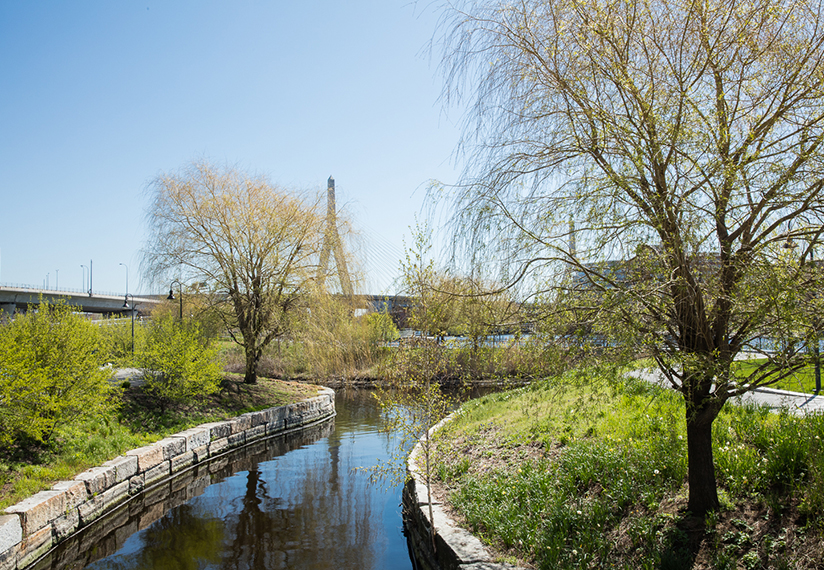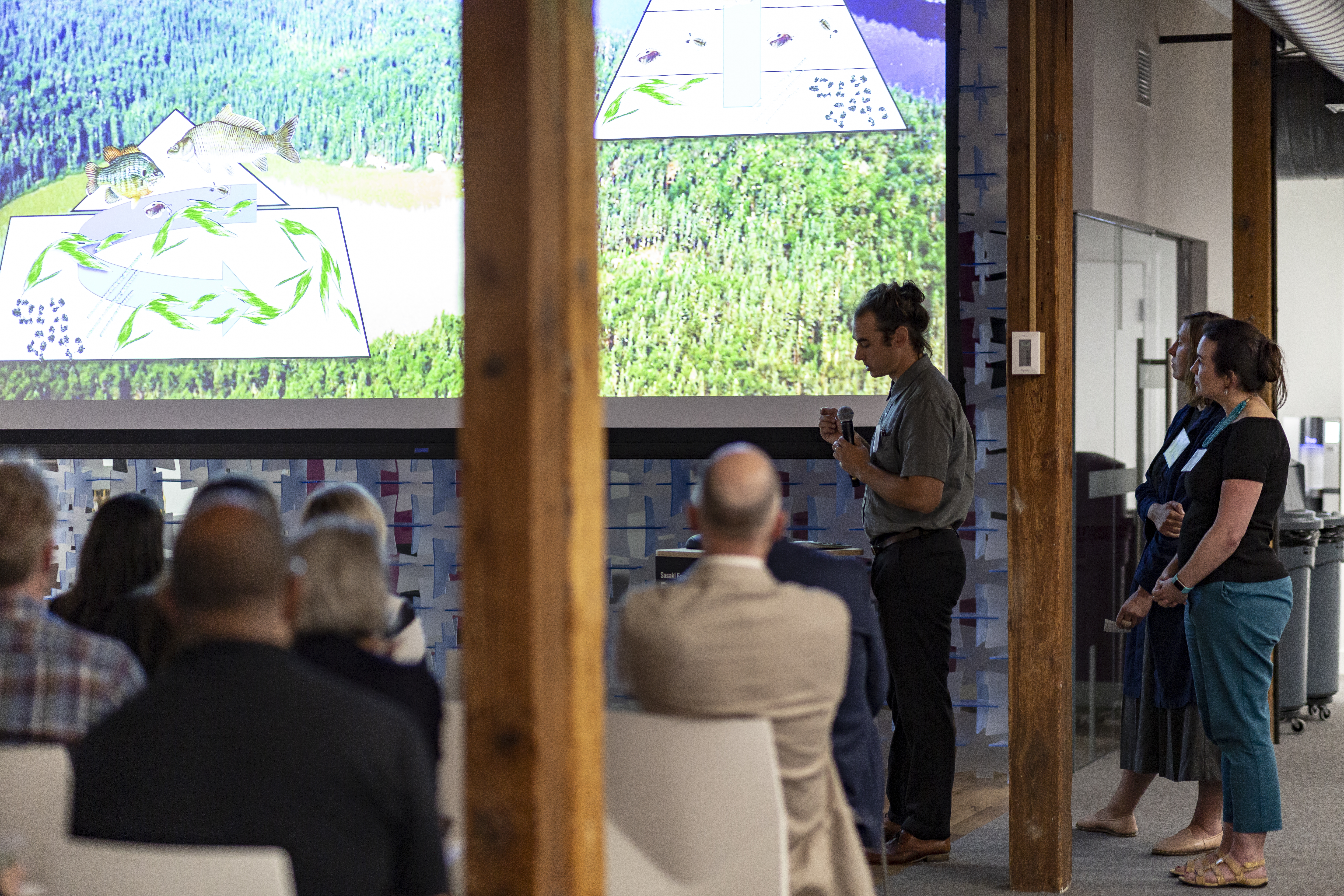December 5, 2018
Coffee with the Cohort: Meet Charles River Floating Wetlands
Alicia Deluga (Mosesso)
Alicia Mosesso, the Foundation’s Program & Marketing Manager, sat down with two members of the Charles River Floating Wetlands project—Max Rome, PhD student in the Department of Civil and Environmental Engineering at Northeastern University, and Vanessa Nason, Project Manager for the Charles River Conservancy.
This project explores an approach aiming to reduce harmful algal blooms by enhancing zooplankton populations using floating wetlands. The goals are to create a visually impactful wetland installation, document the impact on zooplankton and water quality, and educate the public about the relationship between river ecology, pollution, and water quality in order to work toward a healthy and swimmable Charles River.
Alicia: Let’s dive in! What was the biggest inspiration behind your project?
Max: One inspiration behind this project is thinking about what is working in the Charles River and being amazed at how many wild, living creatures are already there, and exploring what we can do to enhance that. Another inspiration comes from research and data collection, and understanding all of the feedback loops that keep the Charles locked in this cycle of algal blooms. I’m inspired to think that we might have another lever we can pull to address that.
Vanessa: The Conservancy has one particular vision we want to add to the Charles River, which is the idea of swimming, and reclaiming the river in that respect. However, there’s a broader inspiration. We have had that “dirty water” for so long, and people didn’t accept that—so many groups came before this work that advocated, engaged citizens and scientists, and motivated government agencies and infrastructure investments, and with that knowledge we can confront challenges with an awareness that people were able to successfully confront other challenges before.
Max: And to me, that’s what’s so exciting about this goal to have swimming on the Charles. It’s almost a magic trick we have to pull, to get people to look at the river with new eyes, instead of just assuming the river is polluted, so they can understand what’s going on there and change their expectation of what the river should be like. It should be a place where they can swim and fish, and there are things we can collectively do to get there.
Vanessa: The idea of being swimmable and fishable means so much more, even if you aren’t a swimmer and don’t fish; it is a sign of a healthy, functioning river. The communities surrounding the river ideally have the infrastructure and have supported the ecology in a way that the river itself is healthy, regardless of its use.

North Point Park. Photo by Aaron Bourque, courtesy Charles River Conservancy

Sasaki Foundation Design Grants Pitch Night. Charles River Floating Wetlands
Alicia: What is one of your favorite things about your work on this project?
Max: One thing I would say is just talking to people about the project. I believe it is the right project at the right time; this project isn’t necessarily something people have thought about but they’re so ready to understand what we’re proposing, and in my experience, people get it, are excited about it, and are eager to see it succeed.
Vanessa: For the Conservancy, this project gives us a different point of reference and a real visual cue to talk about these things. We’re only starting this journey now, but in six months it’s going to look a lot different, so I’m excited about that.The monitoring that has been going on by Max and other agencies and organizations happens at these very discreet moments—often times at the break of dawn when no one is out there—and so to have this visual cue that is always there and talks about the work people have done, are doing, and will continue to do is going to be really important in order to keep this in people’s minds.
Max: I love biking down the Charles River; I love meeting people out there, and very often when I’m doing my sampling someone is really interested and asks me what’s going on. They have really smart questions about the Charles River. I think it’s going to be really cool to have this floating wetland there, which will allow those types of conversations to happen all the time. And that’s why we’re so excited to be doing this through the Sasaki Foundation—I think if this project were being done solely as an academic activity, certain next steps would not be part of the story. It’s not just getting the data—it’s also leveraging this project to bring along as many people as we can to understand what’s happening in the Charles.
Alicia: I love that. So what are the aspirations you have for this project and the impact your work will make on your community?
Max: I grew up in Cambridge and I love water. When I was a little kid, my favorite thing to do would be to have a net and muck around in wetlands and ponds, so I think about all the other kids like me growing up in the Boston area, and how special it is already to have access to the Charles, but also, how much wilder and healthier the Charles can become.
Vanessa: I’ve just been inspired by all these people who came before who didn’t accept what was and saw the possibilities for more. I hope this inspires more people to feel that way too—to get people to think along the lines of “just because this is how it’s always been, doesn’t mean it always has to be.”
Max: And hopefully, the wetland installation will be beautiful and people will say things like, “why can’t we have a floating wetland in this body of water?” and “why can’t we have a floating walkway?” We want people to start getting greedy about what they want.
Alicia: Lastly, what are the various ways folks can get involved in your work?
Vanessa: Between the Sasaki Foundation, the Conservancy, and other channels, the word is getting out there and that is exactly what this project needs as of now. In terms of hands-on engagement, we’ll need that when the project truly comes to fruition in 2019—having folks help us do the installation and planting.
If you’d like to connect with folks from the Charles River Floating Wetlands project, send an email to info@sasakifoundation.org.
